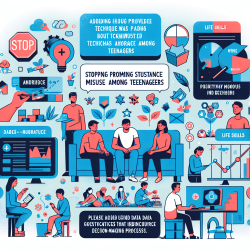As practitioners dedicated to enhancing child outcomes through evidence-based practices, it is crucial to stay informed about the latest research in our field. A recent study titled The Long and the Short of It: A Comparison of the Effectiveness of Parent–Child Care (PC–CARE) and Parent–Child Interaction Therapy (PCIT) provides valuable insights that can inform our clinical decisions and improve the effectiveness of our interventions.
This study aimed to compare the retention rates and effectiveness of two parenting interventions: Parent–Child Care (PC–CARE) and Parent–Child Interaction Therapy (PCIT). Both interventions are designed to address child behavior problems and parenting stress, but they differ significantly in their structure and duration.
Key Findings
- Retention Rates: The study found that participants in PC–CARE were 2.5 times more likely to complete the 7-session program compared to those in PCIT.
- Improvement Rates: PC–CARE participants showed significantly greater rates of improvement in reported child behavior problems and parenting stress over the same 7-week period.
Why PC-CARE Outperformed PCIT
PC-CARE is a brief, 7-session intervention designed to maximize engagement and effectiveness by incorporating several evidence-based strategies:
- Engagement Strategies: Clear session outlines, caregiver and child involvement in the treatment process, and presenting a variety of parenting strategies for caregivers to choose from.
- Comprehensive Skill Set: PC-CARE includes not only positive parenting skills but also behavior management strategies, emotional regulation techniques, and co-regulation skills.
- Flexibility: Caregivers can select the strategies that work best for their unique family dynamics, which enhances the sense of agency and reduces resistance to the intervention.
Implications for Practice
The findings suggest that implementing PC-CARE can lead to higher retention rates and quicker improvements in child behavior and parenting stress. As practitioners, we can leverage these insights to enhance our practice in the following ways:
- Adopt Brief Interventions: Consider integrating brief, structured interventions like PC-CARE to improve engagement and outcomes.
- Focus on Engagement: Use strategies that actively involve both caregivers and children in the treatment process to increase retention.
- Customize Interventions: Offer a variety of parenting strategies to allow caregivers to choose what works best for their family, thereby increasing the likelihood of success.
For those interested in delving deeper into the research, the original study provides a comprehensive comparison of the two interventions and can be accessed here: The Long and the Short of It: A Comparison of the Effectiveness of Parent–Child Care (PC–CARE) and Parent–Child Interaction Therapy (PCIT).
By staying informed and integrating evidence-based practices, we can significantly improve the outcomes for the children and families we serve.










